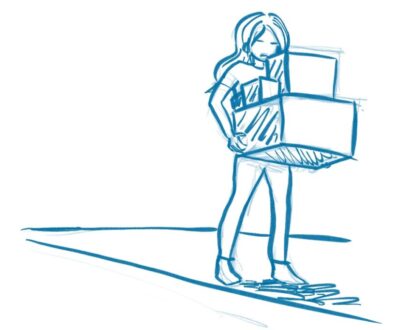Lower cholesterol; why your diet is not working and other pitfalls
I know I need to lower my cholesterol. That did not stop me from eating lunch at Pizza Express and ordering a whole pizza for myself. It had peppers so that made it marginally more healthy…right?
I am going to ignore the fact I also ordered dough balls and fried calamari.
The truth of it is whilst I am trying to be more mindful of my diet, it’s actually damn hard. I have always said food addiction is the hardest addiction to beat because…you need to eat. You can’t simply abstain from it wholly. So I really do empathise with anyone trying to lower cholesterol.
Whilst working through a food diary with my personal trainer, I decided to do some research. Just to see if there was anything I was missing in my own knowledge or any myths. However let’s get the basics right:
Cholesterol is a necessity and not all cholesterol is bad
What even is cholesterol? It’s one of many types of fat found in your body. Pretty simple. It’s implicated in cell membranes structures (your little building blocks of the body) and a number of hormones which keeps your body going. However, much like anything in life, too much of a good thing can be bad
You have probably heard of good and bad cholesterol i.e. HDL (high density lipoproteins) and LDL (low density lipoproteins)*. Technically, these molecules are not cholesterol, just the structures in which cholesterol resides. What differentiates them is LDL molecules carry more fat than HDL molecules and where they end up eventually depositing said fat. To keep things simple, HDL helps to remove fat from the bloodstream and LDL does the opposite and because LDLs carry more fat, you can see how you could end up with more fat in your circulation which is what leads to atherosclerotic disease (in simple english, “fuzzied up vessels”). This means an increased risk of arterial clots leading to heart attacks and strokes.
4 little known facts about lowering cholesterol
1) Lower Cholesterol Diets Don’t Work; Trans and Saturated fats are the problem
It makes sense intuitively right? Don’t eat cholesterol, you can’t have high cholesterol right? Actually a lot of research has shown that dietary cholesterol in itself is not likely to be the problem. It’s also well worth pointing out that only roughly a quarter of your cholesterol is dietary, your liver is responsible for making the majority of it.
What has been shown though is a diet high in trans or saturated fats, rather than cholesterol itself, seems ot be the culprit in increasing LDL in the body. Furthermore it can reduce levels of HDL as well. This is particularly true of hydrogenated (artificial) trans fats, so think of all your processed meals such as microwave meals. They are also implicated in more oxidative stress on your vessels just to add further insult, which means more chances of a clot forming.
Ideally for your lower cholesterol diet to work, you need to be eating foods without them. See this link for a list of foods which work (Editors note 04/2024: Post to be done in the future!).
2) Sleep helps to lower Cholesterol
Why do we ask patients to take a statin at night time? It’s because a lot of cholesterol metabolism occurs at night time. A few studies have shown that disrupted sleep leads to an increase in not only cholesterol but also triglycerides (another topic altogether). There is one study which suggests no association directly related to cholesterol however mentions another study in Finland which found disrupted sleep, rather than the length of sleeping being a potential cause.
There are three theories, the first one being an increase in appetite. This is due to decreasing leptin and increasing ghrelin levels (your gut hormones which tell you if you are hungry or not) so you may end up inadvertently facing the first problem of eating poorly. The second is a lack of energy to do physical exercise, discussed below. The third theory is the increase in stress and the implications it has on cholesterol directly.
3) You Can’t Lower Cholesterol Without Tackling Your Stress
Now the mechanism behind stress and cholesterol is thought possibly related to cortisol release or even due to adrenaline. Whilst I could not find any studies looking directly at the impact on cholesterol from cortisol (bar this one and few others looking at triglycerides mentioned here, there are a lot of studies which correlate with stress overall being a factor in high cholesterol and overall poor cardiovascular health.
4) You have to do the right type and mix of exercise to lower cholesterol
So I’m a runner (I used that term loosely!). What shocked me was that in spite running at least three times a weak for at least half an hour, along with dancing once a week for an hour to a reasonable intensity, my LDL was very high. My HDL was not too bad, could be better.
This meta-analysis (a study looking at loads of studies) actually shows there was a good correlation for increasing HDL with aerobic exercise (which was what I was doing). The problem was the level of intensity. Whilst prolonged runs are in on itself fine for HDL, the increase in intensity of my runs (measured again what my max heart rate can reach) is the key to reducing LDL (and triglycerides).
I also had not factored in any resistance training either. Resistance training from this analysis seems to have bigger implications for LDL and triglycerides rather than increasing HDL unless you increase the intensity.
What does this all mean for me (and for you!)?
It all boils down to this:
- Stress less
- Less broken sleep
- Mix up my exercises and intensity
- Avoid trans and saturated fats.
How to go about all of this without going overboard and inevitably failing is something is tough. All this while I am navigating a career change (Maybe). Even though I am doctor and I give advice around high cholesterol, the actual realities of doing it from my reading and my own experience is humbling to say the least. I hope at some point in the future this blog also serves to be a place where people can learn about better health in a simple manner.
I say this as I tuck into last night’s take out.
*There’s more than just LDL and HDL but keeping things simple for now.

